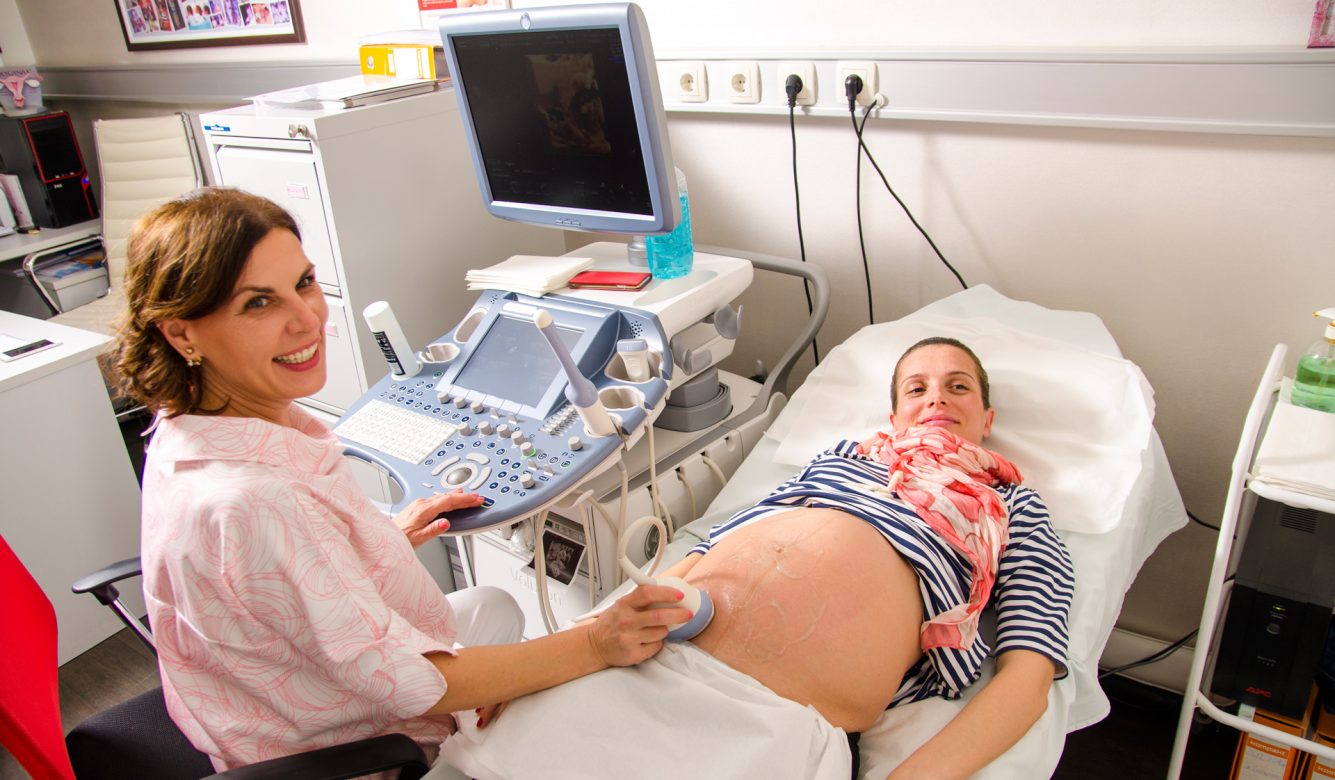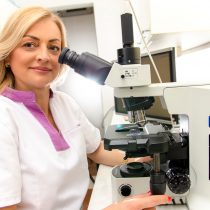Future National Bank of gametes and embryos should be based on the donation of fresh egg cells and embryos, because only in this way may higher degree of success of the biomedical assisted fertilization process be achieved, Dr Zorica Crnogorac Ilić, our leading expert in the treatment of marital sterility and founder of the gynaecological hospital “Genesis”, said commenting one of the most significant innovations of the recently adopted Law on biomedical assisted fertilization.Future National Bank of gametes and embryos should be based on the donation of fresh egg cells and embryos, because only in this way may higher degree of success of the biomedical assisted fertilization process be achieved, Dr Zorica Crnogorac Ilić, our leading expert in the treatment of marital sterility and founder of the gynaecological hospital “Genesis”, said commenting one of the most significant innovations of the recently adopted Law on biomedical assisted fertilization.
– This measure is an important support for about 10 percent of patients faced with this problem, who used to go to the Czech Republic, Macedonia and Greece in order to find solution for their problem. It is estimated that the country lost 10 million euros a year because of this. Most European and international clinics owning a bank, work with fresh cells. If we were to introduce this, our country would be ranked in the top of the list of the success of in vitro fertilization. Otherwise, we will continue to face the outflow of a large number of couples who will go to the treatment of infertility abroad, Dr Crnogorac Ilić added.
On the basis of the attitudes that are related to the new Law and results of specialised gynaecological hospital “Genesis” in the field of in vitro fertilization, as well as a number of innovations this hospital first introduced in Southeast Europe in the field of genetic testing, the Directorate of Biomedicine of the Ministry of Health of the Republic Serbia trusted Dr Crnogorac Ilić to propose measures she considers may affect the better application of the law in practice.
Based on the eleven-year experiences of specialised gynaecological hospital “Genesis”, she suggested several improvements that need to be seriously taken into consideration when making new bylaws, the creation of which has been announced.
– Dr Crnogorac Ilić believes that insisting on three unsuccessful attempts of insemination, before the states covers costs of in vitro fertilization, is not necessary when it comes to couples in which the woman is older than 35, and in case the man has less than ten million sperm cells in the total sample, she adds that this is for the purpose of more efficient and rational procedures when it comes to the couples whose chances get children in the process of insemination are extremely slim.
– Giving up on insemination may save some money in the procedures that do not give the desired effect and you can focus on the method that has a better chance of a positive outcome and that may result in pregnancy on time, the doctor concluded.
Regarding the announcement of the possibility that the Republic Health Insurance Fund covers costs of freezing and storing embryos, Dr Crnogorac Ilić proposed that it would be useful to, as pro-natalist measure, provide funds for biomedical assisted fertilization for the second child to parents who have a live-born child from a previous biomedical assisted fertilization procedure and have frozen and stored embryos.
This would, according to her, have a direct impact on the increase in the birth rate in the Republic of Serbia, and it includes allocating funds which are negligible when compared to the cost of the complete procedure of in vitro fertilization with expensive medicines for the stimulation, the methods of oocyte aspiration, and collecting oocytes and fertilization.
– It would be of great help to couples faced with infertility problems, if the Republic Health Insurance Fund allocated funds for prenatal genetic testing of embryos (PGS), and especially those which have been donated, Dr Crnogorac Ilic said and emphasized that donated embryos must undergo PGS testing before freezing and storing in the Bank. This proposal does not mean allocation of enormous financial resources, and it guarantees genetically tested and healthy embryos, the doctor concludes.
When it comes to women who have had previous unsuccessful IFV procedures, as well as women who have reached 40, it is important to provide ERA testing at the expense of the Republic Health Insurance Fund. It provides an answer to the question of receptivity of the endometrium in women, and when is the best time to bring to the embryo back in the uterus. ERA test increases the IFV procedure success rate by about 20 percent in women who are older than 40 and who have experienced unsuccessful BAF procedures.
Dr Crnogorac Ilić also recommended the abolition of one of the two professional Committees and a foundation of a single Committee, composed of representatives of the Republic Health Insurance Fund and medical specialists in gynaecology and obstetrics who are not in any way involved in the IVF procedures.
In this way malfeasance in the Committee would be prevented and couples could easily follow the steps necessary for obtaining the approval for the IVF procedure at the expense of the Republic Health Insurance Fund, the doctor said.
She believes that proven experts in the field of IVF procedures working in private health institutions should also be given the opportunity to participate and help the work of the Biomedical Assisted Fertilization Expert Committee founded by the Ministry of Health of the Republic of Serbia.
These proposals have been submitted to the Directorate of Biomedicine of the Ministry of Health of the Republic of Serbia and we hope that they will be taken into account when drafting bylaws and thus contribute to improving the state birth rate.






